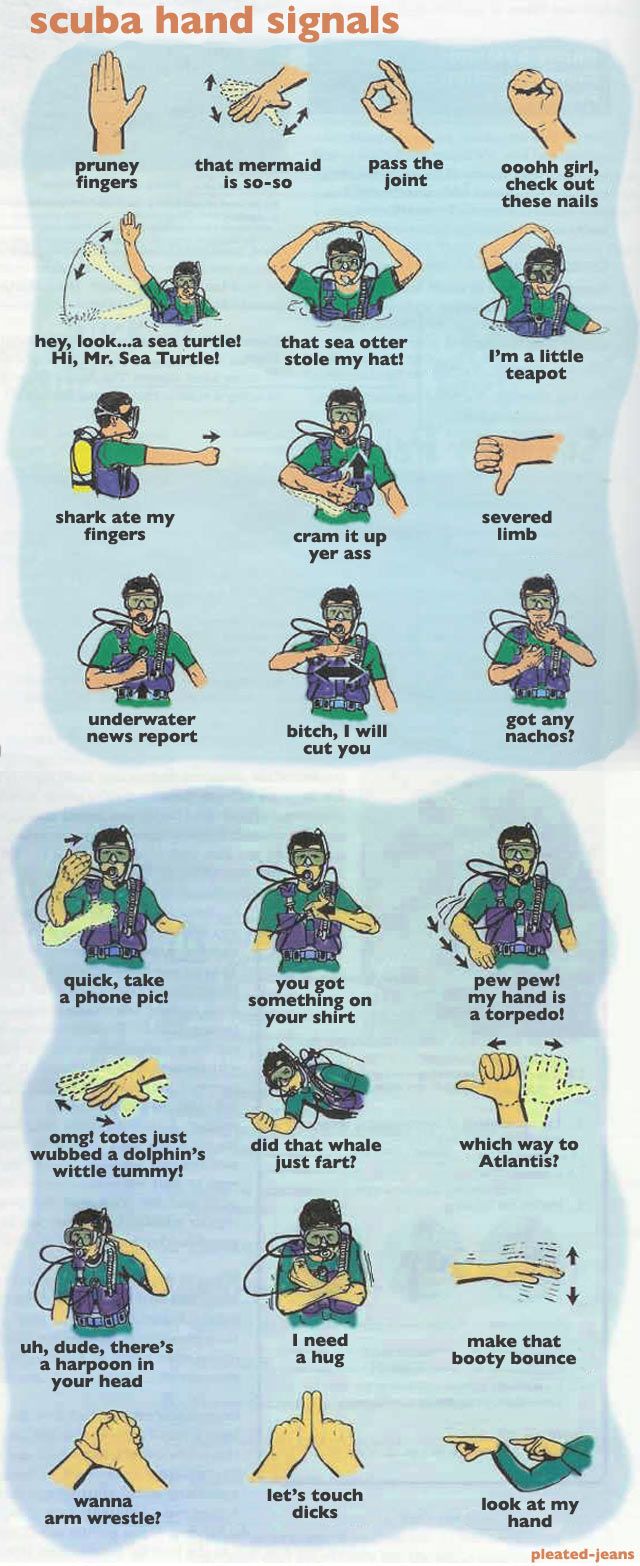Curious why we have our own limited and barbaric hand signals when there are systems already developed for clear communication.
Anyone actively learning sign language for their dive team? Slates are pretty hard to read in comparison.
Would anytime have a collection of the most relevant to scuba signs cheat sheet that would help me learning them?
Ironically a solo diver,
Cameron
Anyone actively learning sign language for their dive team? Slates are pretty hard to read in comparison.
Would anytime have a collection of the most relevant to scuba signs cheat sheet that would help me learning them?
Ironically a solo diver,
Cameron





